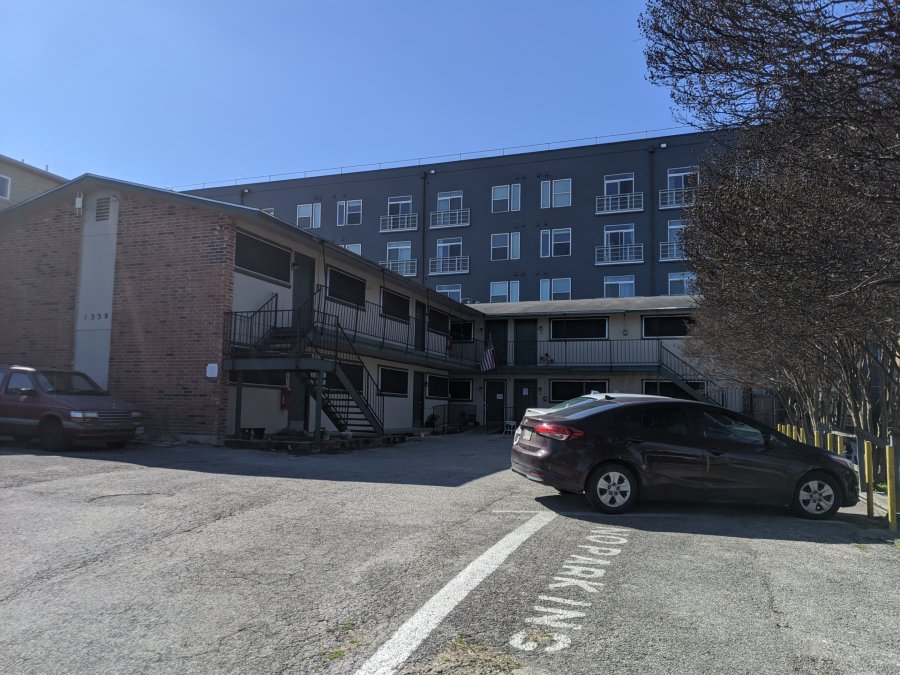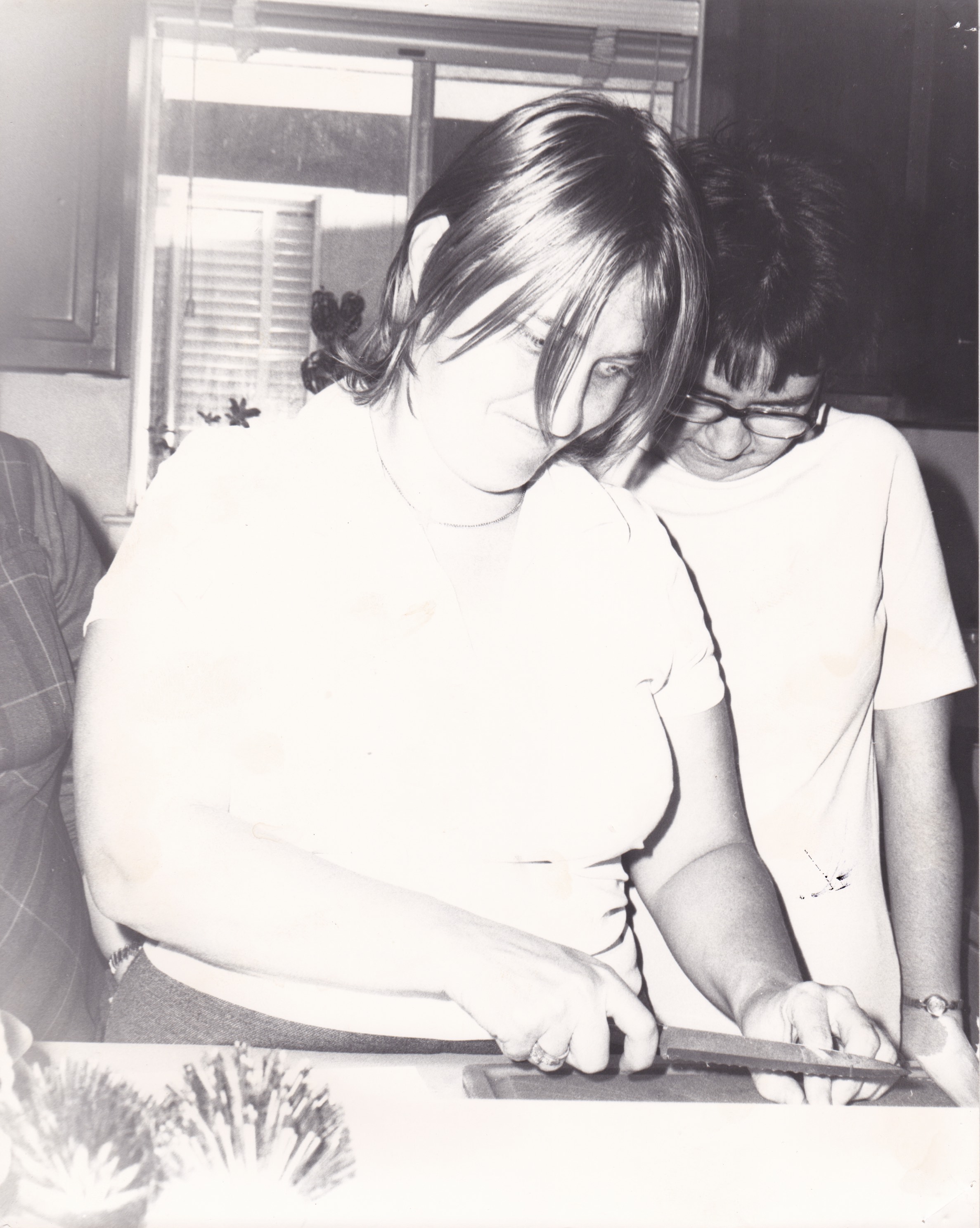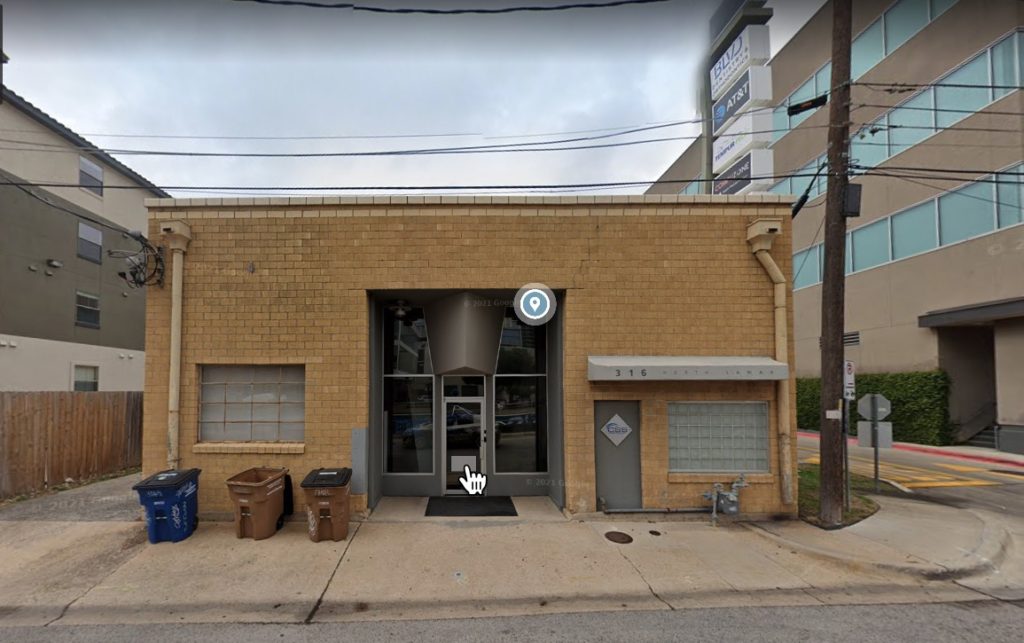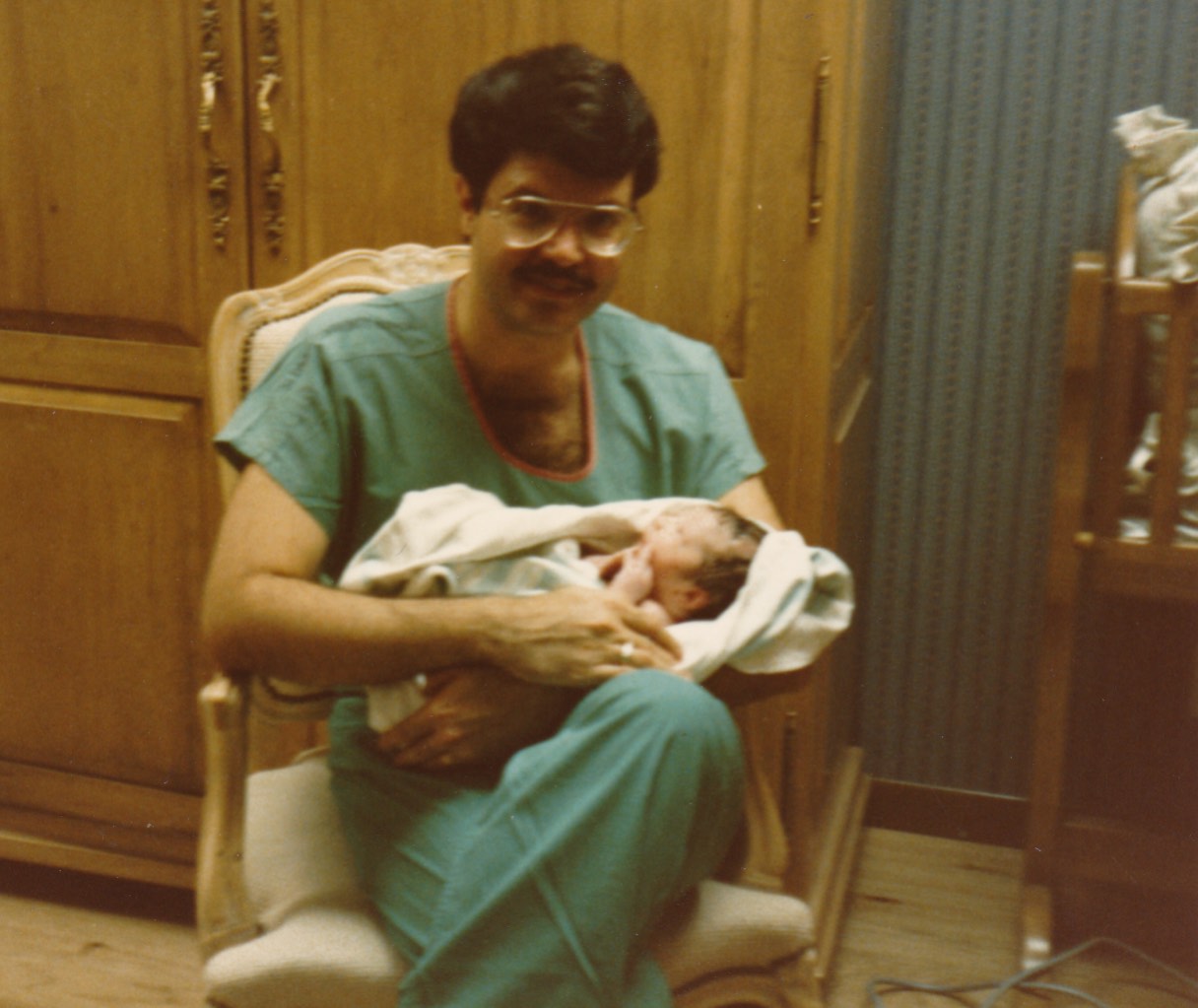My attempt to share stories for each letter of the alphabet featuring our life in Austin B.C. (Before Children) 1975-1985. The 70s were a long time ago. 26 stories might be a stretch for my brain, but I have made it to N – as has the Sepia Saturday prompt photo for this week.
I am a week late posting a response to the letter N. Once I started writing, this post got longer and longer, with many stories to tell. In the end, I decided that maybe this was not the right time or perhaps the right place to tell those stories. So a short version follows.
After I earned my MSSW in 1978, my husband and I traded places. I took his job as the vocational trainer at a halfway house for adults with developmental disabilities and he entered graduate school.
The halfway house was in an apartment complex in south Austin. The program grew during the seven years I worked there. First added were two more apartment buildings accredited as an ICF-MR (Intermediate Care Facility – Mental Retardation). Federal guidelines required a Social Worker on staff, so I moved into that position. We later added a fourth apartment complex, which served as a quarter-way house. I was the Assistant Administrator for the four-complex campus as well as the Social Worker. We served a total of 56 clients who had been diagnosed with a developmental disability. Terminology has changed over time, but most of our residents were diagnosed with mental retardation, cerebral palsy, or epilepsy – and often with multiple diagnoses.

Our goal was to help the residents attain as much independence as possible. For some, the setting was long-term, for others, it was transitional. Independent living skills and work skills were both emphasized.
When it was still just the halfway house, the staff shared an office. Several of our clients worked at Goodwill Industries. Some were in training. Some worked in the sheltered workshop. They rode the bus together each day to and from work.
Mary Sue, a middle-aged woman who had been with us a few weeks, was scheduled to begin her first day at Goodwill. We did some bus training with her and we weren’t too concerned about her getting there and back because she could just stay with the group. We told the other clients to stick with her. Make sure she got off with them at Goodwill. Make sure she got on the bus with them to come home. Make sure she got off with them at the bus stop for the short walk home. Promises were made. She was to stay with them. They were to stay with her.
When the clients arrived home late afternoon, the energetic and talkative young man in the group, walked into the office and announced, “I have good news and bad news! The good news is … (some good thing that happened to him at Goodwill that day). “What is the bad news?” we asked. “Oh. Mary Sue didn’t get off the bus with us.”
My co-worker Judy and I grabbed a bus schedule and the keys to the van. She drove and I navigated. We hoped we could catch up with the bus at one of the stops, get on, and find her. No such luck. We drove the bus route, searching for her. Retracing the route, we were about to give up when we spotted her sitting on the front stoop of a house on a tiny cul-de-sac. Whew!
And that’s how it was working there. The “news” was mostly good, but sometimes you needed to grab a partner, if one was available, and deal with whatever unexpected event happened. On a few rare occasions, the news was really bad. I learned a lot about human nature and our commonalities, the difficulties faced by people with “differences”, and my own strengths and weaknesses. I learned to listen carefully, to choose my words intentionally, to break tasks down into as many steps as were needed. I practiced patience. I learned to make accommodations. I knew people whose lives were a cautionary tale – like the woman with a severe speech impairment and an IQ measured in the 40s due to a fall from a grocery cart as a toddler. And I knew people who gave me inspiration – see I Was Once a Jogger. Humor was always our friend.
My last day of employment arrived a little earlier than expected. I was getting ready for work the week of Thanksgiving 1985 when I went into labor with our first child. She was a couple of weeks early.
I took three months of maternity leave and when it was nearly over, I met with my boss and asked for an additional three months. I wanted my baby to be a less tiny and fragile thing before leaving her in the care of someone else. She said no.
Although we rotated on-call duty, as the Assistant Administrator, I was always next in line if the staff couldn’t reach my boss. I felt like I didn’t have the emotional capacity to be mother to this new baby and also responsible 24-7 for 56 adults who get lost, lose jobs, have accidents, have roommate problems, have emotional breakdowns, get sick … My responsibility did not end at the end of the work day, but it felt as constant as a parent’s. Just in case, my husband and I had practiced living off one salary while I was on maternity leave and found that it was doable – there were things we simply did not need to spend money on. So that was that.
I was disappointed that my boss turned me down because I did like my job and loved the people I worked with. I don’t know what would have happened if she had granted me the additional three months. Perhaps she sensed that it would have just delayed the inevitable.
Please visit other Sepia Saturday participants here. I can’t wait to see what others have prepared in response to this funny prompt photo!
Sepia Saturday provides bloggers with an opportunity to share their history through the medium of photographs. Historical photographs of any age or kind become the launchpad for explorations of family history, local history and social history in fact or fiction, poetry or prose, words or further images. If you want to play along, sign up to the link, try to visit as many of the other participants as possible, and have fun.






What a huge responsibility! And with all that continually happened, I’m sure your days working were never dull. But I can see where trying to be a mother to a baby and eventually a toddler and young child would be quite difficult, trying to keep pace with that sort of job at the same time. It probably wouldn’t have been good for your own mental health. You’d be worried all the time for both your child, and all those needful residents – especially not knowing what might happen when!
That is certainly how I felt at the time – especially since I tend to be a worrier.
Thanks for sharing another thoughtful story, Kathy. In my family there are a few relations who have lived with children with developmental disabilities of different kinds. In the very ‘olden days’, (a technical term used by my sister-in-law, a retired professor of German history at Oxford University 🙂 many children with mental/physical challenges were shamefully hidden away in institutions. For other families, such children were kept “protected” within a home, becoming adults with little or no contact with the outside world. I know this past year has been particularly harsh for families coping with caring for both children and elderly adults. I’d like to think that American society could learn from this terrible experience, but I’m not hopeful given the constant nonsense and stupidity espoused by conservative public officials. People with mental/physical issues have clearly demonstrated that they are very capable of being productive and self-sustaining citizens if given the right training and help.
I worked there at a time when our referrals came from both ends of the spectrum, in that we were getting quite a few folks who had lived in institutions for many years and younger people who had attended public school at home and were ready to take the next steps toward independence. And there were also those who had always lived with family, who were facing the dilemma of what would happen to their child once they were unable to be caregivers. I know this h
I know this has had to be a terrible time for parents and children with special needs not having access to services or school!
This pandemic has brought out the best and worst of people and I am no more hopeful than you are, unfortunately.
A poignant post, particularly now that childcare — specifically lack of it in the U.S. — is back in the news. Shame on your boss for not granting you the extra 3 months leave — and since that didn’t happen, you made the right decision, especially with such a demanding job. I am sure your daughter thanks you for it.
I was disappointed in my boss’s decision, but I have no regrets about my decision and the shape our lives took.